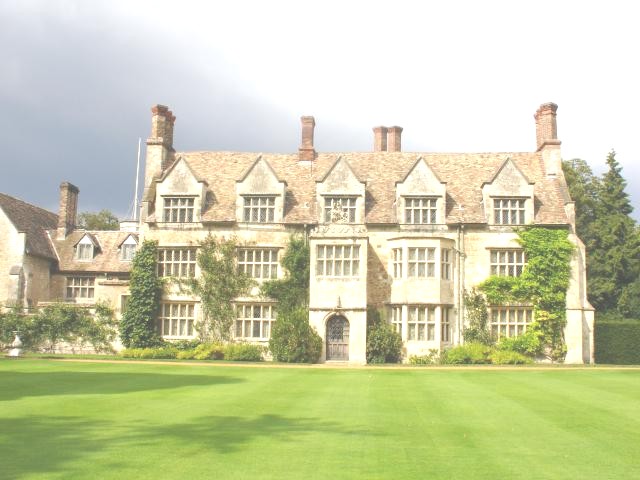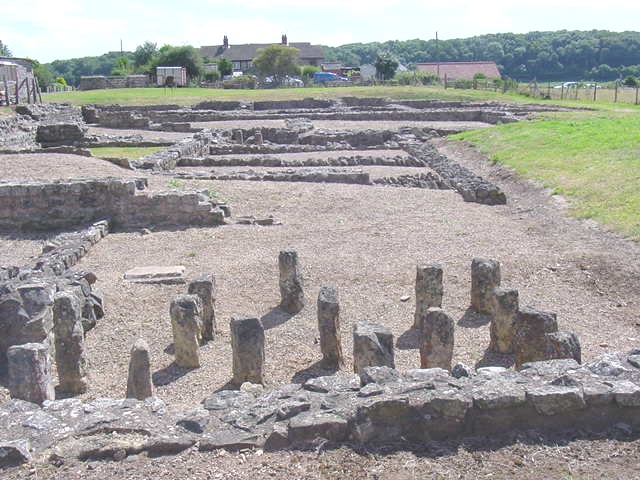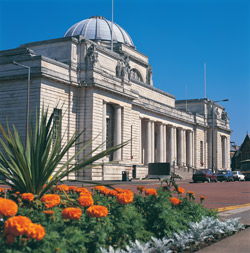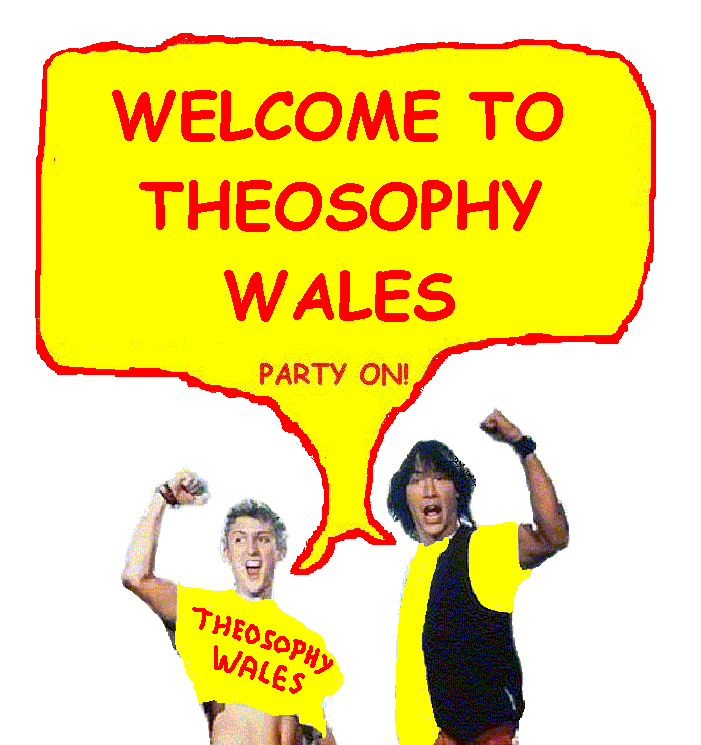

____________
THE
OF
THEOSOPHY
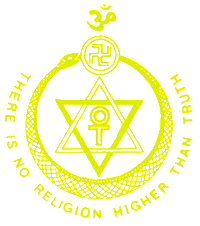
A Definitive Work on Theosophy
By
William Quan Judge
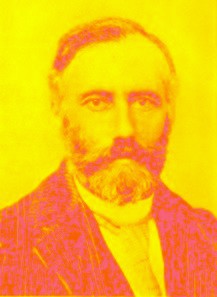
CHAPTER 13
Devachan
Having shown that just beyond the threshold of human life there is a
place of separation wherein the better part of man is divided from his lower
and brute elements, we come to consider what is the state after death of the
real being, the immortal who travels from life to life. Struggling out of the
body the entire man goes into kama loka, to purgatory, where he again struggles
and
loosens himself from the lower skandhas; this period of birth over, the
higher principles, Atma-Buddhi-Manas, begin to think in a manner different from
that which the body and brain permitted in life. This is the state of Devachan,
a Sanskrit word meaning literally "the place of the gods," where the
soul enjoys
felicity; but as the gods have no such bodies as ours, the Self in
devachan is devoid of a mortal body. In the ancient books it is said that this
state lasts "for years of infinite number," or "for a period
proportionate to the merit of the being"; and when the mental forces
peculiar to the state are exhausted, "the being is drawn down again to be
reborn in the world of mortals."
Devachan
is therefore an interlude between births in the world. The law of karma which
forces us all to enter the world, being ceaseless in its operation and also
universal in scope, acts also on the being in devachan, for only by the force
or operation of Karma are we taken out of devachan. It is something like the
pressure of atmosphere which, being continuous and uniform, will push
out or crush that which is subjected to it unless there be a compensating
quantity of atmosphere to counteract the pressure. In the present case the
karma of the being is the atmosphere always pressing the being on or out from
state to state; the counteracting quantity of atmosphere is the force of the
being's own life-thoughts and aspirations which prevent his coming out of
devachan until that force is exhausted, but which being spent has no more power
to hold back the decree of our self-made mortal destiny.
The necessity for this state after death is one of the necessities of
evolution growing out of the nature of mind and soul. The very nature of manas
requires a devachanic state as soon as the body is lost, and it is simply the
effect of loosening the bonds placed upon the mind by its physical and astral
encasement.
In life we can but to a fractional extent act out the thoughts we have
each moment; and still less can we exhaust the psychic energies engendered by
each day's aspirations and dreams. The energy thus engendered is not lost or
annihilated, but is stored in Manas, but the body, brain, and astral body
permit no full development of the force. Hence, held latent until death, it
bursts then from the weakened bonds and plunges Manas, the thinker, into the
expansion, use, and development of the thought-force set up in life.
The impossibility of escaping this necessary state lies in man's
ignorance of his own powers and faculties. From this ignorance delusion arises,
and Manas not being wholly free is carried by its own force into the thinking
of devachan. But while ignorance
is the cause for going into this state the whole process is remedial,
restful, and beneficial. For if the average man returned at once to another
body in the same civilization he had just quitted, his soul would be completely
tired out and deprived of the needed opportunity for the development of the
higher part of his nature.
Now the Ego being minus mortal body and kama, clothes itself in devachan
with a vesture which cannot be called body but may be styled means or vehicle,
and in that it functions in the devachanic state entirely on the plane of mind
and soul. Everything is as real then to the being as this world seems to be to
us.
It simply now has gotten the opportunity to make its own world for
itself unhampered by the clogs of physical life. Its state may be compared to
that of the poet or artist who, rapt in ecstacy of composition or arrangement
of color, cares not for and knows not of either time or objects of the world.
We are making causes every moment, and but two fields exist for the
manifestation in effect of those causes. These are, the objective as this world
is called, and the subjective which is both here and after we have left this
life. The objective field relates to earth life and the grosser part of man, to
his bodily acts and his brain thoughts, as also sometimes to his astral body.
The subjective has to do with his higher and spiritual parts. In the
objective field the psychic impulses cannot work out, nor can the high leanings
and aspirations of his soul; hence these must be the basis, cause, substratum,
and support for the state of devachan. What then is the time, measured by
mortal
years, that one will stay in devachan?
This question while dealing with what earth-men call time does not, of
course, touch the real meaning of time itself, that is, of what may be in fact
for this solar system the ultimate order, precedence, succession, and length of
moments.
It is a question which may be answered in respect to our time, but not
certainly in respect to the time on the planet Mercury, for instance, where
time is not the same as ours, nor, indeed, in respect to time as conceived by
the soul. As to the latter any man can see that after many years have slipped
away he has no
direct perception of the time just passed, but is able only to pick out
some of the incidents which marked its passage, and as to some poignant or
happy instants or hours he seems to feel them as but of yesterday. And thus it
is for the being in devachan. No time is there. The soul has all the benefit of
what goes on within itself in that state, but it indulges in no speculations as
to the lapse of moments; all is made up of events, while all the time the solar
orb is marking off the years for us on the earth plane.
This cannot be regarded as an impossibility if we will remember how, as
is well known in life, events, pictures, thoughts, argument, introspective
feeling will all sweep over us in perfect detail in an instant, or, as is known
of those who have been drowning, the events of a whole life time pass in a
flash before the eye of the mind. But the Ego remains as said in devachan for a
time exactly proportioned to the psychic impulses generated during life. Now
this being a matter which deals with the mathematics of the soul, no one but a
Master can tell what the time would be for the average man of this century in
every land. Hence we have to depend on the Masters of wisdom for that average,
as it must be based upon a calculation.
They have said, as is well put by Mr. A. P. Sinnett in his Esoteric
Buddhism, that the period is fifteen hundred years in general. From a reading
of his book, which was made up from letters from the Masters, it is to be
inferred he desires it to be understood that the devachanic period is in each
and every case fifteen centuries; but to do away with that misapprehension his
informants wrote at a later date that that is the average period and not a
fixed one.
Such must be the truth, for as we see that men differ in respect to the
periods of time they remain in any state of mind in life due to the varying
intensities of their thoughts, so it must be in
devachan
where thought has a greater force though always due to the being who had the
thoughts.
What the Master did say on this is as follows: "The 'dream of devachan' lasts until
karma is satisfied in that direction. In devachan there is a
gradual exhaustion of force. The stay in devachan is proportionate to the unexhausted
psychic impulses originated in earth life. Those whose actions were
preponderatingly material will be sooner brought back into rebirth by
the force of Tanha." Tanha is the thirst for life. He therefore who has
not in life originated many psychic impulses will have but little basis or
force in his essential nature to keep his higher principles in devachan.
About all he will have are those originated in childhood before he began
to fix his thoughts on materialistic thinking. The thirst for life expressed by
the word Tanha is the pulling or magnetic force lodged in the skandhas inherent
in all beings. In such
a case as this the average rule does not apply, since the whole effect
either way is due to a balancing of forces and is the outcome of action and
reaction.
And this sort of materialistic thinker may emerge out of devachan into another body
here in a month, allowing for the unexpended psychic forces originated in early
life. But as every one of such persons varies as to class, intensity and
quantity of thought and psychic impulse, each may vary in respect to the time
of stay in devachan.
Desperately materialistic thinkers will remain in the devachanic condition
stupefied or asleep, as it were, as they have no forces in them appropriate to
that state save in a very vague fashion, and for them it can be very truly said
that there is no state after death so far as mind is
concerned; they are torpid for a while, and then they live again on
earth. This general average of the stay in devachan gives us the length of a
very important human cycle, the Cycle of Reincarnation. For under that law
national development will be found to repeat itself, and the times that are
past will be found to come again.
The last series of powerful and deeply imprinted thoughts are those
which give color and trend to the whole life in devachan. The last moment will
color each subsequent moment. On those the soul and mind fix themselves and
weave of them a whole set of events and experiences, expanding them to their
highest limit, carrying out all that was not possible in life. Thus expanding
and weaving these thoughts the entity has its youth and growth and growing old,
that is, the uprush of the force, its expansion, and its dying down to final
exhaustion.
If the person has led a colourless life the devachan will be colourless;
if a rich life, then it will be rich in variety and effect. Existence there is
not a dream save in a conventional sense, for it is a stage of the life of man,
and when we are there this present life is a dream. It is not in any sense
monotonous. We are too prone to measure all possible states of life and places
for experience by our present earthly one and to imagine it to be reality.
But the life of the soul is endless and not to be stopped for one
instant. Leaving our physical body is but a transition to another place or
plane for living in. But as the ethereal garments of devachan are more lasting
than those we wear here, the spiritual,
moral, and psychic causes use more time in expanding and exhausting in
that state than they do on earth. If the molecules that form the physical body
were not subject to the general chemical laws that govern physical earth, then
we should live as long in these bodies as we do in the devachanic state. But
such a
life of endless strain and suffering would be enough to blast the soul
compelled to undergo it. Pleasure would then be pain, and surfeit would end but
in an immortal insanity. Nature, always kind, leads us soon again into heaven
for a rest, for the flowering of the best and highest in our natures.
Devachan
is then neither meaningless nor useless. "In it we are rested; that part
of us which could not bloom under the chilling skies of earth-life bursts forth
into flower and goes back with us to earth-life stronger and more a part of our
nature than before. Why should we repine that Nature kindly aids us in the
interminable struggle, why keep the mind revolving about the present petty
personality and its good and evil fortunes? " (Letter from Mahatma K. H.
See Path p. 191, Vol. 5.)
But it is sometimes asked, what of those we have left behind: do we see
them there? We do not see them there in fact, but we make to ourselves their
images as full, complete, and objective as in life, and devoid of all that we
then thought was a blemish. We live with them and see them grow great and good
instead of mean or bad. The mother who has left a drunken son behind finds him
before her in devachan a sober, good man, and likewise through all possible
cases, parent, child, husband, and wife have their loved ones there perfect and
full of knowledge. This is for the benefit of the soul. You may call it a
delusion if you will, but the illusion is necessary to happiness just as it
often is in life. And as it is the mind that makes the illusion, it is no
cheat.
Certainly the idea of a heaven built over the verge of hell where you
must know, if any brains or memory are left to you under the modern orthodox
scheme, that your erring friends and relatives are suffering eternal torture,
will bear no comparison with the doctrine of devachan. But entities in devachan
are not
wholly devoid of power to help those left on earth. Love, the master of
life, if real, pure, and deep, will sometimes cause the happy Ego in devachan
to affect those left on earth for their good, not only in the moral field but
also in that of material circumstance. This is possible under a law of the
occult universe
which cannot be explained now with profit, but the fact may be stated.
It has been given out before this by H. P. Blavatsky, without, however, much
attention being drawn to it.
The last question to consider is whether we here can reach those in devachan or do they come
here. We cannot reach them nor affect them unless we are Adepts.
The claim of mediums to hold communion with the spirits of the dead is
baseless, and still less valid is the claim of ability to help those who have
gone to devachan.
The Mahatma, a being who has developed all his powers and is free from
illusion, can go into the devachanic state and then communicate with the Egos
there.
Such is one of their functions, and that is the only school of the
Apostles after death. They deal with certain entities in devachan for the
purpose of getting them out of the state so as to return to earth for the
benefit of the race. The Egos they thus deal with are those whose nature is
great and deep but who are not wise enough to be able to overcome the natural
illusions of devachan.
Sometimes also the hypersensitive and pure medium goes
into this state and then holds communication with the Egos there, but it
is rare, and certainly will not take place with the general run of mediums who
trade for money. But the soul never descends here to the medium. And the gulf
between the consciousness of devachan and that of earth
is so deep and wide that it is but seldom the medium can remember upon
returning to recollection here what or whom it met or saw or heard in devachan.
This gulf is similar to that which separates devachan from rebirth; it is one
in which all memory of what preceded it is blotted out.
The whole period allotted by the soul's forces being ended in devachan, the magnetic
threads which bind it to earth begin to assert their power. The Self wakes from
the dream, it is borne swiftly off to a new body, and then, just before birth,
it sees for a moment all the causes that led it to devachan and back to the
life it is about to begin, and knowing it to be all just, to be the
result of its own past life, it repines not but takes up the cross again
-- and another soul has come back to earth.
ARGUMENTS
SUPPORTING REINCARNATION
DIFFERENTIATION OF SPECIES MISSING LINKS
PSYCHIC
LAWS, FORCES, AND
PHENOMENA
PSYCHIC
PHENOMENA AND SPIRITUALISM
______________________
THE
OF
THEOSOPHY

Find out more about
Theosophy with these links
The Cardiff Theosophical Society Website
The National
Wales Theosophy Website
Theosophy
Wales Youtube Channel
Ten Benefits of Studying the Blavatskyan
Theosophical Teachings
Studying
the Blavatskyan Theosophical teachings offers numerous benefits that can
greatly enrich one's understanding of spirituality, philosophy, and the nature
of reality. Theosophy, as defined by the
writings of Helena Petrovna Blavatsky, has had a profound impact on the
spiritual and philosophical landscape of the modern world. Blavatsky's teachings
draw from a wide range of religious and philosophical traditions, including
Hinduism, Buddhism, and Western esotericism, and present a comprehensive
worldview that addresses fundamental questions about existence, consciousness,
and the cosmos.
Here
are ten benefits of studying the Blavatskyan Theosophical Teachings
1.
Exploration of Esoteric Wisdom
One
of the primary benefits of studying the Blavatskyan Theosophical teachings is
the opportunity to explore esoteric wisdom that is often not readily accessible
in mainstream religious or philosophical traditions. Blavatsky's writings delve
into the esoteric teachings of ancient cultures and mystery schools, shedding
light on profound spiritual truths that have been passed down through the ages.
By delving into these esoteric teachings, students of Theosophy can gain
insights into the nature of consciousness, the structure of the cosmos, and the
evolution of the soul or immortal self.
2.
Synthesis of Eastern and Western Philosophy
Blavatsky's
Theosophical teachings synthesize elements of Eastern and Western philosophy,
offering a comprehensive framework that integrates concepts from diverse
cultural and religious traditions. This synthesis provides students with a
broader perspective on philosophical and spiritual thought, allowing them to
see the underlying unity of seemingly disparate belief systems. By studying
Theosophy, individuals can gain a deeper appreciation for the universal
principles that underlie all wisdom traditions, fostering a sense of unity and
interconnectedness with the world's spiritual heritage.
3.
Understanding of Universal Brotherhood
Central
to Blavatsky's Theosophical teachings is the principle of universal
brotherhood, which emphasizes the essential unity of all beings and the interconnectedness
of life. By studying Theosophy, individuals can develop a profound
understanding of the interconnected nature of existence, recognizing that all
living beings are fundamentally linked and that compassion and empathy are
essential for the evolution of humanity. This understanding can lead to a
greater sense of empathy, kindness, and social responsibility, fostering a more
harmonious and compassionate society.
4.
Insight into the Nature of Reality
The
Blavatskyan Theosophical teachings offer profound insights into the nature of
reality, consciousness, and the unseen dimensions of existence. Through the
study of Theosophy, individuals can explore concepts such as the
multi-dimensional nature of the universe, the existence of subtle energy realms,
and the interconnectedness of the material and spiritual planes. This
exploration can lead to a deeper understanding of the nature of reality beyond
the limitations of the physical senses, opening up new vistas of perception and
understanding.
5.
Personal Spiritual Growth
Studying
the Theosophical teachings can be a transformative journey that facilitates
personal spiritual growth and self-discovery. Blavatsky's writings offer
practical guidance for inner development, including meditation practices, ethical
principles, and the cultivation of spiritual virtues. By applying these
teachings to their lives, individuals can experience profound personal
transformation, leading to greater self-awareness, inner peace, and a sense of
purpose and meaning.
6.
Ethical and Moral Guidance
The
Theosophical teachings provide a comprehensive ethical and moral framework that
can guide individuals in their personal and social interactions. Blavatsky
emphasizes the importance of ethical conduct, altruism, and the pursuit of
wisdom, offering practical guidance for leading a virtuous and meaningful life.
By studying Theosophy, individuals can gain clarity on moral issues, cultivate
a sense of ethical responsibility, and contribute to the greater good of
humanity.
7.
Appreciation of Comparative Religion
The
study of Theosophy encourages an appreciation of comparative religion and the
underlying unity of religious and spiritual traditions. Blavatsky's writings
explore the common threads that run through the world's religions, highlighting
universal spiritual principles that transcend cultural and historical
boundaries. By gaining a deeper understanding of comparative religion through
Theosophy, individuals can develop a more inclusive and pluralistic
perspective, fostering interfaith harmony and mutual respect.
8.
Intellectual Stimulation
The
Theosophical teachings offer a rich and intellectually stimulating framework
for exploring profound philosophical and metaphysical concepts. Blavatsky's writings
encompass a wide range of subjects, including cosmology, metaphysics, ancient
wisdom, and the evolution of consciousness, providing ample material for
intellectual inquiry and contemplation. By engaging with these teachings,
individuals can expand their intellectual horizons, develop critical thinking
skills, and gain a deeper understanding of the fundamental questions that have
intrigued philosophers and mystics throughout history.
9.
Healing and Reconciliation
The
Theosophical teachings offer insights into the nature of healing and
reconciliation, both on a personal and collective level. Blavatsky's writings
delve into the esoteric principles of healing, the nature of disease, and the
interconnectedness of mind, body, and spirit. By studying Theosophy,
individuals can gain a deeper understanding of holistic healing modalities, the
power of the mind in influencing health, and the potential for spiritual
transformation through the healing process. Furthermore, the Theosophical
emphasis on universal brotherhood and compassion can contribute to the
reconciliation of divisions and conflicts within society, fostering a more
harmonious and peaceful world.
10.
Contribution to Global Transformation
Finally,
studying the Blavatskyan Theosophical teachings can empower individuals to
contribute to the ongoing global transformation towards a more enlightened and
compassionate world. Blavatsky's vision of a spiritually awakened humanity,
working towards the betterment of all beings, inspires individuals to engage in
positive action and service to humanity. By embodying the principles of
Theosophy in their lives, individuals can become agents of positive change,
working towards the realization of a more just, peaceful, and sustainable
world.
In
summary, the study of the Blavatskyan Theosophical teachings offers a wide
range of benefits, ranging from personal spiritual growth to the potential for
global transformation. By delving into the esoteric wisdom, ethical principles,
and philosophical insights of Theosophy, individuals can expand their
understanding of the nature of reality, cultivate compassion and empathy, and
contribute to the evolution of humanity towards a more harmonious and
enlightened future. As the Theosophical teachings continue to inspire and guide
seekers of truth and wisdom, their profound impact on individuals and society
is likely to endure for generations to come.
If you run a Theosophy Group, please feel free
to use any of the material on this site
The Most Basic Theosophy
Website in the Universe
A quick overview of Theosophy
and the Theosophical Society
If you run a Theosophy Group you
can use this as an introductory handout.
Theosophy Cardiff’s Instant Guide
One liners and quick explanations
H P Blavatsky is
usually the only
Theosophist that
most people have ever
heard of. Let’s
put that right
The Voice of the Silence Website
An Independent Theosophical Republic
Links to Free Online Theosophy
Study Resources; Courses, Writings,
The main criteria
for the inclusion of
links on this
site is that they have some
relationship
(however tenuous) to Theosophy
and are
lightweight, amusing or entertaining.
Topics include
Quantum Theory and Socks,
Dick Dastardly and Legendary Blues Singers.
A selection of
articles on Reincarnation
Provided in
response to the large
number of
enquiries we receive at
Cardiff
Theosophical Society on this subject
The Voice of the Silence Website
This is for everyone, you don’t have to live
in Wales to make good use of this Website
No Aardvarks were harmed in the
The Spiritual Home of Urban Theosophy
The Earth Base for Evolutionary Theosophy
Theosophy Birmingham (England)
The Birmingham Annie Besant Lodge
Theosophy Cardiff has links with the
_______________________
Your Own
Theosophy Group Starts Here
A Guide to
starting your own
Theosophy Group
& of course
you don’t need to live in Wales
to take advantage
of this guide
__________________
The Theosophy
The Theosophy Cardiff Guide to
The Theosophy Cardiff Guide to
The Theosophy Cardiff Guide to
The Terraced Maze of Glastonbury Tor
Glastonbury and
Joseph of Arimathea
The Grave of King Arthur & Guinevere
Views of Glastonbury High Street
The Theosophy Cardiff Guide to
__________________
Camberley,
Surrey, England GU15 2LF
Concerns about the
fate of the wildlife as
Tekels Park is to
be Sold to a Developer
Concerns are raised
about the fate of the
wildlife as The Spiritual
Retreat,
Tekels Park in
Camberley, Surrey,
England is to be
sold to a developer.
Tekels Park is a 50
acre woodland park,
purchased for the Adyar
Theosophical
It doesn’t require a Diploma in
Finance
and even someone with a Diploma
in
Astral Travel will know that
this is a
bad time economically to sell Tekels Park
In addition to
concern about the park,
many are worried about the
future
of the Tekels Park
Deer as they
Confusion as the Theoversity moves
out of
Tekels Park to Southampton,
Glastonbury &
Chorley in Lancashire while the
leadership claim
that the Theosophical Society will
carry on using
Tekels Park despite its sale to a developer
Anyone planning a
“Spiritual” stay at the
Tekels Park Guest
House should be aware of the sale.
Future of Tekels Park Badgers in Doubt
Party On! Tekels Park Theosophy NOT
Tekels Park & the Loch Ness Monster
A Satirical view of
the sale of Tekels Park
in Camberley,
Surrey to a developer
The Toff’s Guide to the Sale of Tekels Park
What the men in top
hats have to
say about the sale
of Tekels Park
____________________
A B C D EFG H IJ KL M N OP QR S T UV WXYZ
Complete Theosophical Glossary in Plain Text Format
1.22MB
Theosophy Cardiff Nirvana Pages
Quick Explanations with Links to More Detailed Info
What is Theosophy ? Theosophy Defined (More Detail)
Three Fundamental Propositions Key Concepts of Theosophy
Cosmogenesis Anthropogenesis Root Races
Ascended Masters After Death States
The Seven Principles of Man Karma
Reincarnation Helena Petrovna Blavatsky
Colonel Henry Steel Olcott William Quan Judge
The Start of the Theosophical
Society
History of the Theosophical
Society
Theosophical Society Presidents
History of the Theosophical
Society in Wales
The Three Objectives of the
Theosophical Society
Explanation of the Theosophical
Society Emblem
The Theosophical Order of
Service (TOS)
Glossaries of Theosophical Terms
by
Annie Besant
THE BUDDHIC AND
NIRVANIC PLANES
______________________
Annie Besant Visits Cardiff 1924
An Outstanding
Introduction to Theosophy
By a student of
Katherine Tingley
Elementary Theosophy Who is the Man? Body and Soul
Body, Soul and Spirit Reincarnation Karma
Reincarnation
This guide has been included in response
to the number of enquiries we receive on this
subject at Cardiff
Theosophical Society
From A Textbook
of Theosophy By C W Leadbeater
How We Remember our Past Lives
Life after Death & Reincarnation
The Slaughter of the
a great demand by the public for lectures on
Reincarnation
What Theosophy Is From the Absolute to Man
The Formation of a Solar System The Evolution of Life
The Constitution of Man After Death Reincarnation
The Purpose of Life The Planetary Chains
The Result of Theosophical Study
Quotes from the Writings of
Helena Petrovna Blavatsky
The Secret Doctrine , Volume 2, Page 100
It is only by the attractive force of the contrasts
that the two opposites — Spirit and Matter — can be cemented together on
Earth, and, smelted in the fire of self-conscious experience and suffering, find
themselves wedded in Eternity.
The Secret Doctrine , Volume 2, Page 108
It is the motive, and the motive alone, which makes
any exercise of power become black, malignant, or white, beneficent Magic. It is
impossible to employ spiritual forces if there is the slightest tinge of
selfishness remaining in the operator .... The powers and forces of animal
nature can equally be used by the selfish and revengeful, as by the unselfish
and the all-forgiving; the powers and forces of spirit lend themselves only to
the perfectly pure in heart — and this is Divine Magic.
Isis Unveiled, Volume 1, Page 36
The Secret Doctrine , Volume 3, Page 14
Even ignorance is better than
Head-learning with no Soul-wisdom to illuminate and guide it.
The Voice of
the Silence, Page 43
Annotation - The Path, May, 1888
The Secret Doctrine , Proem [Volume 1], Page 35
Isis Unveiled, Volume 1, Page 210
The Secret Doctrine , Volume 1, Page 134
incarnation of
his God; and when the sense of personal responsibility will be so
Isis Unveiled,
Volume 2, Page 374
It is the
motive, and the motive alone, which makes any exercise of power become
The Secret Doctrine , Volume 2, Page 498
Isis Unveiled, Volume 1, Page 36
From strength to
strength, from the beauty and perfection of one plane to the
greater beauty
and perfection of another, with accessions of new glory, of fresh
knowledge and
power in each cycle, such is the destiny of every Ego, which thus
becomes its own
saviour in each world and incarnation.
The Key to
Theosophy, Page 105
The Secret Doctrine , Volume 1, Page 69
The mind
receives indelible impressions even from chance acquaintance or persons
Isis Unveiled,
Volume 1, Page 311
The Key to Theosophy, Page 228
An Outline of Theosophy
Charles Webster Leadbeater
Theosophy - What it is How is it Known? The Method of Observation
General Principles The Three Great Truths The Deity
Advantage Gained from this
Knowledge The Divine Scheme
The Constitution of Man The True Man Reincarnation
The Wider Outlook Death Man’s Past and Future
Cause and Effect What Theosophy does for us
Try these if you are looking for a local
Theosophy Group or Centre
UK Listing of Theosophical Groups
Please tell us about your UK Theosophy Group
___________________
into categories
and presented according to relevance of website.
Web Directory
- Add Link - Submit Article - Online Store - Forum
Cardiff, Wales, UK, CF24 – 1DL
_________________
Wales Picture Gallery
The Great Orme
llandudno
Promenade
Great Orme
Tramway
New Radnor
Blaenavon
Ironworks
Llandrindod
Wells
Cardiff
Theosophical Society in Wales
Cardiff, Wales, UK. CF24 – 1DL
Presteign
Railway
Caerwent Roman Ruins
Denbigh
Nefyn
Penisarwaen
Cardiff
Theosophical Society in Wales
Cardiff, Wales, UK. CF24 – 1DL












